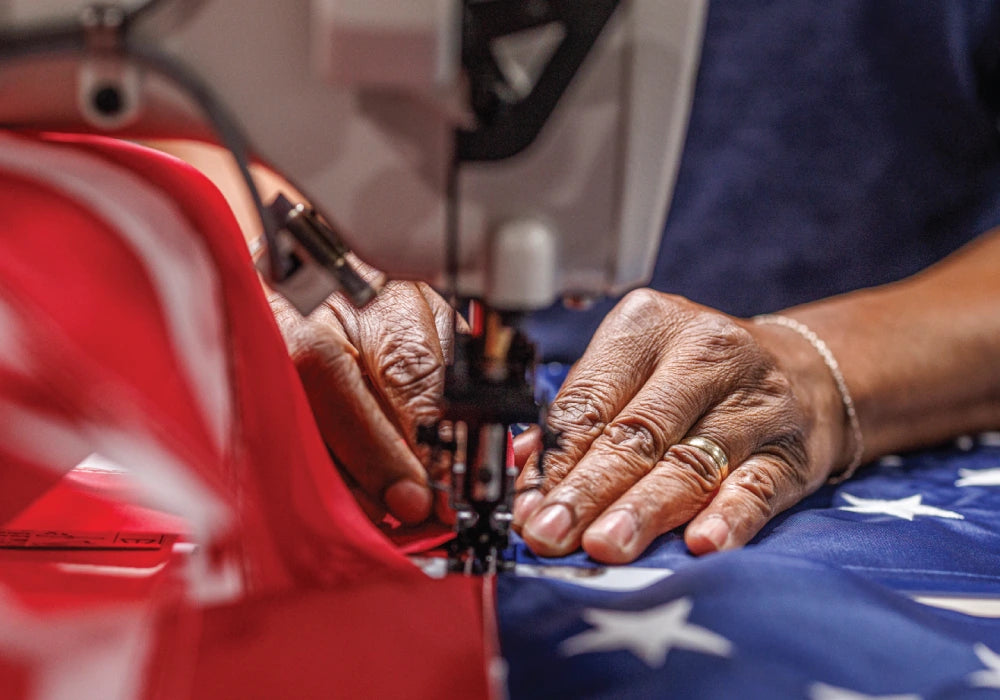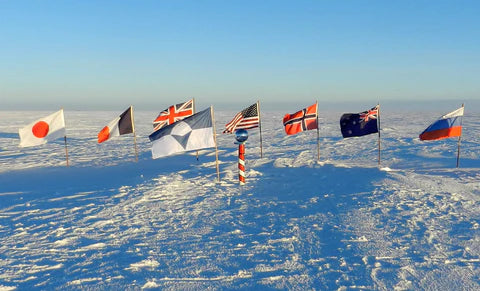November 26

1941
President Franklin D. Roosevelt signed a bill officially establishing the fourth Thursday in November as Thanksgiving Day. This followed the precedent set by President Abraham Lincoln in 1863 which was followed annually by every subsequent president—until 1939. In 1939, Franklin D. Roosevelt departed from tradition by declaring November 23, the next to last Thursday that year, as Thanksgiving Day. He thought this would help bolster retail sales during one of the final years of the Great Depression by adding an extra seven days of Christmas shopping. Considerable controversy surrounded this deviation, and some Americans refused to honor Roosevelt’s declaration. For the next two years, Roosevelt repeated the unpopular proclamation. In 1941, Roosevelt admitted his mistake and reverted back to the precedent established by Lincoln.

1942
Casablanca, a World War II-era drama starring Humphrey Bogart and Ingrid Bergman, premieres in New York City; it will go on to become one of the most beloved Hollywood movies in history. In the film, Bogart played Rick Blaine, the owner of a swanky North African nightclub, who is reunited with the beautiful, enigmatic Ilsa Lund (Bergman), the woman who loved and left him. Directed by Michael Curtiz, Casablanca took home three Oscars, for Best Picture, Best Director and Best Adapted Screenplay. The film featured a number of now-iconic quotes, including Rick’s line to Ilsa: “Here’s looking at you, kid,” as well as “Round up the usual suspects,” “Louis, I think this is the beginning of a beautiful friendship” and “Of all the gin joints in all the towns in all the world, she walks into mine.”

1956
The original Price Is Right, hosted by Bill Cullen, premiered on NBC's daytime schedule. During the American game show, contestants made successive bids on merchandise prizes with the goal of bidding closest to the actual retail price of the prize without going over. The show was a precursor to the current and best-known version of the show, which premiered in 1972 on CBS's daytime schedule. It makes The Price Is Right one of only a few game shows to have aired in some form across all three of the Big Three television networks. Bob Barker hosted 35 seasons of daily episodes until his retirement in 2007 when Drew Carey assumed hosting duties.


1968
While returning to base from another mission, Air Force 1st Lt. James P. Fleming and four other Bell UH-1F helicopter pilots received an urgent message from an Army Special Forces team pinned down by enemy fire. Lieutenant Fleming and another pilot pressed on with the rescue effort while others could not because of low fuel. The first attempt failed because of intense ground fire, but refusing to abandon the Army green berets, Fleming managed to land and pick up the team. When he safely arrived at his base near Duc Co, it was discovered that his aircraft was nearly out of fuel. Lieutenant Fleming was later awarded the Medal of Honor for his actions.
November 27


1910
New York City's Pennsylvania Station opened as the world's largest railway terminal. The original Penn Station occupied two city blocks and was built by The Pennsylvania Railroad. In 1963, however, Penn Station was razed, and was replaced by Madison Square Garden. When the building was destroyed, art historian Vincent Scully famously said, “One entered the city like a god. One scuttles in now like a rat.” The event is considered the inspiration of The Landmarks Law. Now, most of Penn Station in underground.

1978
Former Board of Supervisors member Dan White murdered Mayor George Moscone and Supervisor Harvey Milk at City Hall in San Francisco, CA. White had reportedly been angry about Moscone’s decision not to reappoint him to the city board. White fired upon the mayor first then turned his gun on his rival Milk, who was one of the nation’s first openly gay politicians and a much-admired activist in San Francisco. Future CA Senator Dianne Feinstein, who was the first to find Milk’s body, found herself informing a stunned crowd at City Hall of the assassinations.

1991
At the height of Hulk Hogan's popularity during a 248 day title reign as the WWF Champ, Hogan and The Undertaker met for the first time at Survivor Series 1991. Thanks to some outside interference from Paul Bearer and Hogan's long-time nemesis, Ric Flair, Taker walked out with his first World Championship. At the time, The Undertaker was the youngest person to ever hold the title at 26 years old.
November 28

1895
On this Thanksgiving Day, piloting a gas-powered “horseless carriage” of his and his brother’s own design, the mechanic, inventor and now race car driver Frank Duryea won the first motor-car race in the United States. The race, sponsored by the Chicago Times-Herald, was intended to drum up publicity for the nascent American car industry. It worked, especially for the Duryeas: In the year after the Times-Herald race, the brothers sold 13 of their eponymous Motor Wagons, more than any other carmaker in America.

1925
The Grand Ole Opry, one of the longest-lived and most popular showcases for western music, began broadcasting live from Nashville, Tennessee. The showcase was originally named the Barn Dance, after a Chicago radio program called the National Barn Dance that had begun broadcasting the previous year. The Barn Dance officially became the Opry in 1927. As the program aired immediately after the NBC Music Appreciation Hour, one evening George D. Hay ad-libbed, “For the past hour, you have been listening to Grand Opera. Now we will present Grand Ole Opry!” The Opry aired from the famous Ryman auditorium from 1934 to 1974 before moving to the Grand Ole Opry House. President Richard Nixon was in attendance and lead the Opry audience in singing "Happy Birthday" to First Lady Pat Nixon.

1943
President Franklin Delano Roosevelt joined British Prime Minister Winston Churchill and Soviet leader Joseph Stalin at a conference in Iran to discuss strategies for winning World War II and potential terms for a peace settlement. Tehran, Iran was chosen as the site for the talks largely due to its strategic importance to the Allies. The United States was able to get supplies to the Soviets through Iran when Germany controlled most of Europe, the Balkans and North Africa, and German U-boat attacks on Allied shipping in the Atlantic Ocean and North Sea made transport treacherous.
November 29

1890
The first football game between the cadets of West Point and the cadets of Annapolis was played on the Plain at West Point. The rivalry began because Dennis Michie, Class of 1892, asked Navy to issue a challenge that could not be refused. It would be West Point’s first intercollegiate football game, but Navy had been playing since 1879. Since cadets were not allowed to leave the Academy grounds, Michie agreed to pay half of Navy’s travel expenses, and every cadet agreed to charge $0.52 to his store account for the purpose. The final score was 24-0 in favor of Navy.

1942
Coffee joined the list of items rationed in the United States. Scarcity or shortages were rarely the reason for rationing during the war. Rationing was generally employed for two reasons: (1) to guarantee a fair distribution of resources and foodstuffs to all citizens; and (2) to give priority to military use for certain raw materials, given the present emergency.

1981
Actress Natalie Wood, who starred in such movies as Rebel Without a Cause and West Side Story, drowned in a boating accident near California’s Catalina Island. The actress was with her husband, Robert Wagner, and Christopher Walken. Neither Wagner nor Walken saw what happened to Wood that night, but it was believed she somehow slipped overboard while untying a dinghy attached to the boat. Her body was found in the early hours of the following morning. Brainstorm, Wood’s final film, was released in theaters in 1983. She was 43 years old.
November 30

1954
The first modern instance of a meteorite striking a human being occurred in Sylacauga, Alabama, when a meteorite crashed through the roof of a house and into a living room, bounced off a radio and struck a woman on the hip. The victim, Mrs. Elizabeth Hodges, was sleeping on a couch at the time of impact. The space rock was a sulfide meteorite weighing 8.5 pounds and measuring seven inches in length. Mrs. Hodges was not permanently injured but suffered a nasty bruise along her hip and leg. Ancient Chinese records tell of people being injured or killed by falling meteorites, but the Sylacauga meteorite was the first modern record of this type of human injury. In 1911, a dog in Egypt was killed by the Nakhla meteorite.

1965
32-year-old lawyer Ralph Nader published the muckraking book Unsafe at Any Speed: The Designed-In Dangers of the American Automobile. The book became a best-seller right away. It also prompted the passage of the National Traffic and Motor Vehicle Safety Act of 1966, seat-belt laws in 49 states (all but New Hampshire and a number of other road-safety initiatives. Today, Nader is perhaps best known for his role in national politics—and in particular for the controversial role he played in the 2000 presidential election—but Unsafe at Any Speed was the book that made him famous and lent credibility to his work as a consumer advocate.

2004
After winning 74 straight games and more than $2.5 million—a record for U.S. game shows—Jeopardy! contestant Ken Jennings loses. Jennings’ extended winning streak gave the game show a huge ratings boost and turned the software engineer from Salt Lake City, Utah into a TV hero and household name. Barbara Walters named him one of the 10 most fascinating people of the year and Jennings appeared on such shows as Late Night with David Letterman, The Tonight Show with Jay Leno and even Sesame Street.
December 1

1913
Henry Ford installed the first moving assembly line for the mass production of an entire automobile. His innovation reduced the time it took to build a car from more than 12 hours to one hour and 33 minutes. Ford’s Model T, introduced in 1908, was simple, sturdy and relatively inexpensive–but not inexpensive enough for Ford, who was determined to build “motor car[s] for the great multitude.” (“When I’m through,” he said, “about everybody will have one.”) In February 1914, he added a mechanized belt that chugged along at a speed of six feet per minute. As the pace accelerated, Ford produced more and more cars, and on June 4, 1924, the 10-millionth Model T rolled off the Highland Park assembly line.


1955
In Montgomery, Alabama, Rosa Parks was jailed for refusing to give up her seat on a public bus to a white man, a violation of the city’s racial segregation laws. The successful Montgomery Bus Boycott, organized by a young Baptist minister named Martin Luther King, Jr., followed Park’s historic act of civil disobedience. The boycott stretched on for more than a year, and participants carpooled or walked miles to work and school when no other means were possible. As African Americans previously constituted 70 percent of the Montgomery bus ridership, the municipal transit system suffered gravely during the boycott. On November 13, 1956, the U.S. Supreme Court struck down Alabama state and Montgomery city bus segregation laws as being in violation of the equal protection clause of the 14th Amendment to the U.S. Constitution.

1959
Twelve nations, including the United States and the Soviet Union, signed the Antarctica Treaty, which bans military activity and weapons testing on that continent. It was the first arms control agreement signed in the Cold War period. There could be no military presence on the continent, and no testing of weapons of any sort, including nuclear weapons. Scientific ventures were allowed, and scientists would not be prohibited from traveling through any of the areas claimed by various nations. A dozen nations signed the document, all with territorial claims on the continent. The treaty marked a small but significant first step toward U.S.-Soviet arms control and political cooperation. The treaty went into effect in June 1961, and set the standard for the basic policies that continue to govern Antarctica.
December 2

1970
Created in response to the dawning realization that human activity can have major effects on the planet, the Environmental Protection Agency opened its doors and heralded a new age of government action on behalf of the environment. Given the number of offices across the executive branch that were now tasked with enforcing environmental regulations, President Richard Nixon decided in July of 1970 to create a single agency to deal with environmental issues. The EPA opened with 5,800 employees and a budget of $1.4 billion. The agency acted aggressively to enforce the Clean Water Act, secure a ban on the pesticide DDT, and prosecute the corporations responsible for polluting Ohio's Cuyahoga River. The position of EPA Administrator is considered cabinet-level despite the EPA not technically being a cabinet agency.

1997
Good Will Hunting premiered in Los Angeles, propelling childhood friends Ben Affleck and Matt Damon to Hollywood stardom. The film features Damon in the title role as a troubled math genius from South Boston, Robin Williams as Will’s psychologist, Minnie Driver as Will’s girlfriend and Affleck as Will’s best friend. A big box-office success, Good Will Hunting won Robin Williams his only Oscar, Best Supporting Actor, in addition to the gold statue for Best Original Screenplay for Affleck and Damon.

2001
The Enron Corporation filed for Chapter 11 bankruptcy protection in a New York court, sparking one of the largest corporate scandals in U.S. history. By the end of the year, Enron’s collapse had cost investors billions of dollars, wiped out some 5,600 jobs and liquidated almost $2.1 billion in pension plans. Over the next several years, the name “Enron” becomes synonymous with large-scale corporate fraud and corruption, as an investigation by the Securities and Exchange Commission and the U.S. Justice Department reveals that Enron inflated its earnings by hiding debts and losses in subsidiary partnerships.




